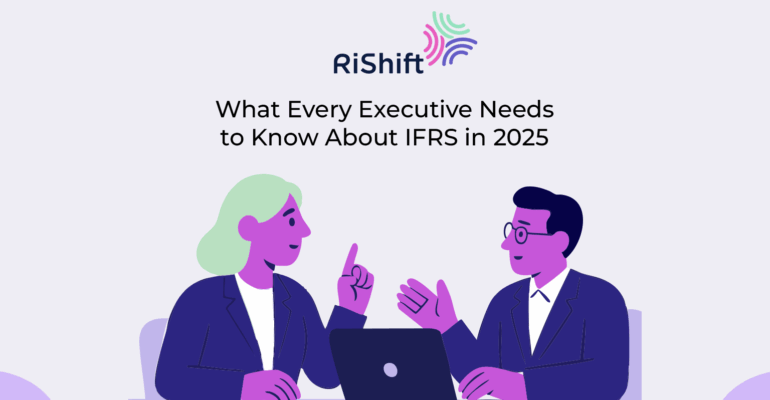What Every Executive Needs to Know About IFRS in 2025
IFRS is no longer just about reporting — they represent a shift in how businesses must approach resilience and long-term value. These new standards, issued by the ISSB, focus on disclosing sustainability-related (S1) and climate-related (S2) risks and opportunities that can affect a company’s financial health.
1. Why IFRS S1 and S2 Matter
IFRS go beyond traditional ESG by requiring disclosures that link sustainability and climate issues directly to financial performance. These standards emphasize how material risks and opportunities should be embedded into core strategy, governance, and decision-making. In short, sustainability is no longer a silo — it’s part of the business model.
2. How Companies Are Affected
Even without local enforcement, companies integrated into global value chains are already under pressure to comply. Investors and international partners expect transparency. Companies that don’t adapt may lose business or be excluded from sustainable finance flows.
3. Where Most Organizations Fall Short:
- Don’t connect sustainability with enterprise risk
- Lack board-level oversight of climate strategy
- Underestimate the level of structure IFRS S1 and S2 require
4. Meeting IFRS expectations is a leadership priority. Success starts with:
- Integrating climate and sustainability into enterprise risk management
- Mapping governance roles and disclosures with precision
- Educating leadership on how risks impact enterprise value
- When approached correctly, compliance becomes an opportunity to lead.
IFRS S1 and S2 are not only technical standards — they are a signal that the world expects companies to plan, act, and disclose with clarity. At RiShift, we help leadership teams translate those expectations into action.
Book a free diagnostic with RiShift. Let’s map where you stand and what’s next.



